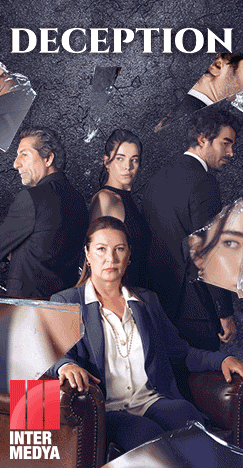The third day of TTV+Live: The Future of TV Content, organized by TTV Media Group, featured a panel of professionals focused on the debate on innovation in fiction creation processes.
This Thursday, December 10, marked day 3 of TTV+Live: The Future of TV Content, a virtual event organized by TTV Media Group within the framework of the launch of its networking platform and Marketplace: TTV+.
The panel of this third day, entitled Drivers of Innovation to Create Fiction Content, featured Carlos Bardasano, president of W Studios at Televisa; Carlos Fueyo, VFX artist and director (Super 8, Avengers); Joel Novoa, director / writer (Arrow, Days of Reckoning UK, The Nanny and Slave of God); and Felipe Pimiento, Magnus Media; and was moderated by Marlon Quintero, CEO of CIC Media & Innovation.
The panel focused on the contribution of views from the perspective of the product, business and technology.
“Innovation in content has the purpose of generating profits and overthrowing orthodoxies,” began Marlon Quintero, who presented the reality show Big Brother as an example of radical innovation, which generated a new formula; and of incremental innovation, which improves on that innovation, with a product like Big Brother VIP.
“Innovation is something we are used to applying in an intuitive way,” Quintero said. “It is an intellectual property that generates a benefit for the audience and creates a new business formula, increasing the value.”
In the case of product innovation, Carlos Bardasano shared his experience in creating content with innovative stories such as Rubí, Amar a muerte or El Dragón.
“Rubí is part of The Dream Factory, the redefinition of stories from Televisa’s collection, which has an incredible story, which was born in the 60s as a comic, very similar to what happens with Batman. We used that plan of how to make this successful with totally iconic characters,” he said.
The executive pointed out that an example of innovation achieved was to narrate “a kind of sequel to the original version, but in two different dramatic times, maintaining the most important characters in history and production values that have never been seen before on TV.”
In the case of Amar a muerte, the executive stated that the great challenge was to introduce a story to the audience that has a subplot based on the sentimental relationship of two women.
“The challenge was to introduce the story in an organic way and we made it grow,” he said and highlighted that now this allows them to develop a film with these two characters.
In the case of The Dragon, “we seemed crazy doing a series about a narco samurai,” said the executive, who underlined Televisa’s support to carry out this unique project and, in particular, that of Emilio Azcárraga Jean, as well as that of Netflix which took fiction to “a world scale.”
Venezuelan Joel Novoa shared his experience as a Hollywood writer, through series such as Arrow and, for which the concept of innovation can be applied on a personal level and in professional development.
“The first day I arrived on the set of Arrow, I see the cave and I say to the director: ‘We are going to innovate’ and for me innovation in stories comes down to the level of detail,” he said.
Novoa said that, in his case, the creation “comes out of the obstacle, which generates optimism”, taking as an example the creation of characters and stories not previously thought of.
In addition, Felipe Pimiento commented on the Magnum Studios experience as the creator of innovative stories such as the animated series Gloria quiere saberlo todo for ViacomCBS International Studios.
“The idea for Gloria comes from a Dominican couple in the US. That story had all the elements that identified those of us who were working on the project. We knew that with this story we had a lot to bring to the table,” he said.
The alliance with Mundo Loco, Juan José Campanella’s animation studio, has been key, accelerating – even in the midst of a pandemic- the development of the story.
Meanwhile, Carlos Fueyo commented on the process of technological innovation in content creation.
“The VFX process is somewhat complicated. It all starts on set with a green screen. That process is a bit separate from direction or production design. One begins to create what does not exist. It’s a very creative and fun process,” he said.
In this sense, the creator said that the essence of cinema is technology. “Cinema exists thanks to radical technology,” he said.
Thus, the executive said that at the time when creators such as George Melies or Luis Buñuel, although they did not have a green screen, innovated in their own way.
“Now we can have the environment that is wanted. We have virtual production. Very powerful video cards where ideas can be expressed today. Technology is democratizing not only cinema but also TV. Technology is changing the way we consume, produce and also create,” he concluded.
The full panel can be viewed here: https://ttv.live/ttvplus/en/virtual/stage/41942
TTV+Live: The Future of TV Content, is taking place within the TTV+ platform for 10 days with more than 20 panels, keynotes and conferences by more than 40 renowned speakers from the TV industry.
Among them stand names such as Kate del Castillo, Juan José Campanella, Natalia Scalia, Fernando Barbosa, Sonia Martínez, Maarten Meijs, Javier Pons, Carlos Bardasano, Fidela Navarro, Fredrik af Malmborg, Jimmy Arteaga and Ates Ince, among others.
The event runs until December 18.
To participate you simply have to register for free through the following link: https://www.ttvallinone.com/en/sign-up/
Those who are already registered can directly enter here: https://ttv.live/ttvplus/en/virtual/home
In addition, both the registration and the event and the platform can be accessed through applications on iOS and Android, already available for download.











